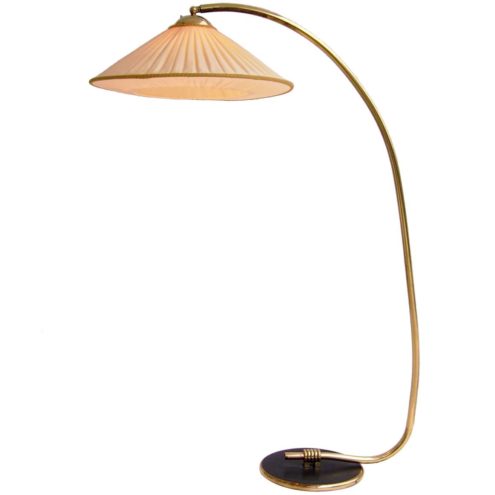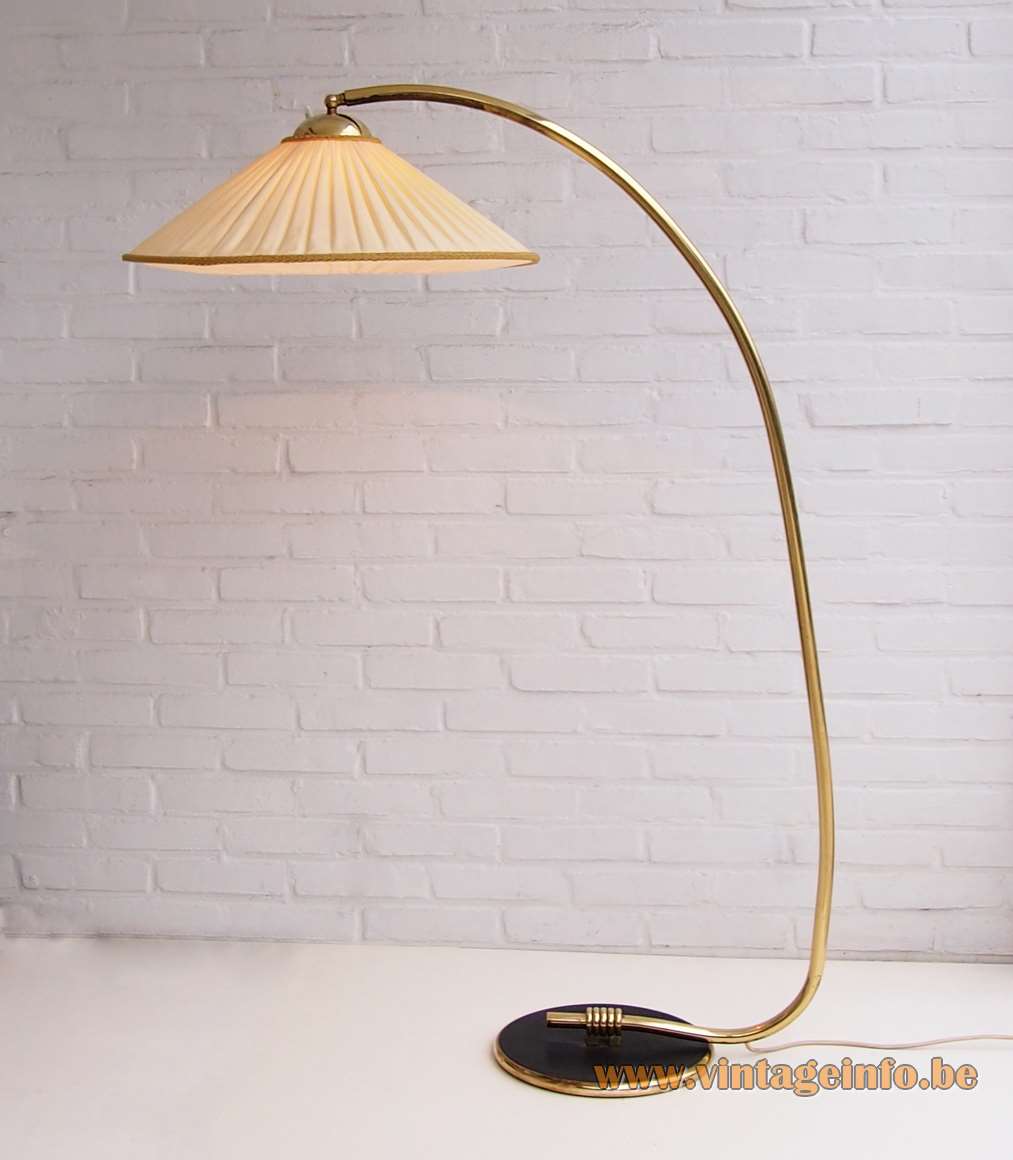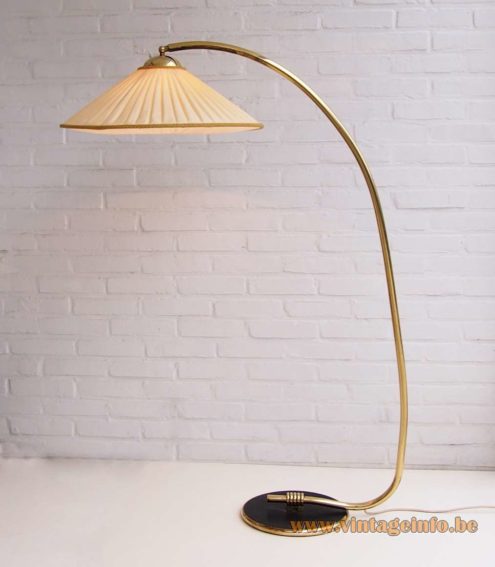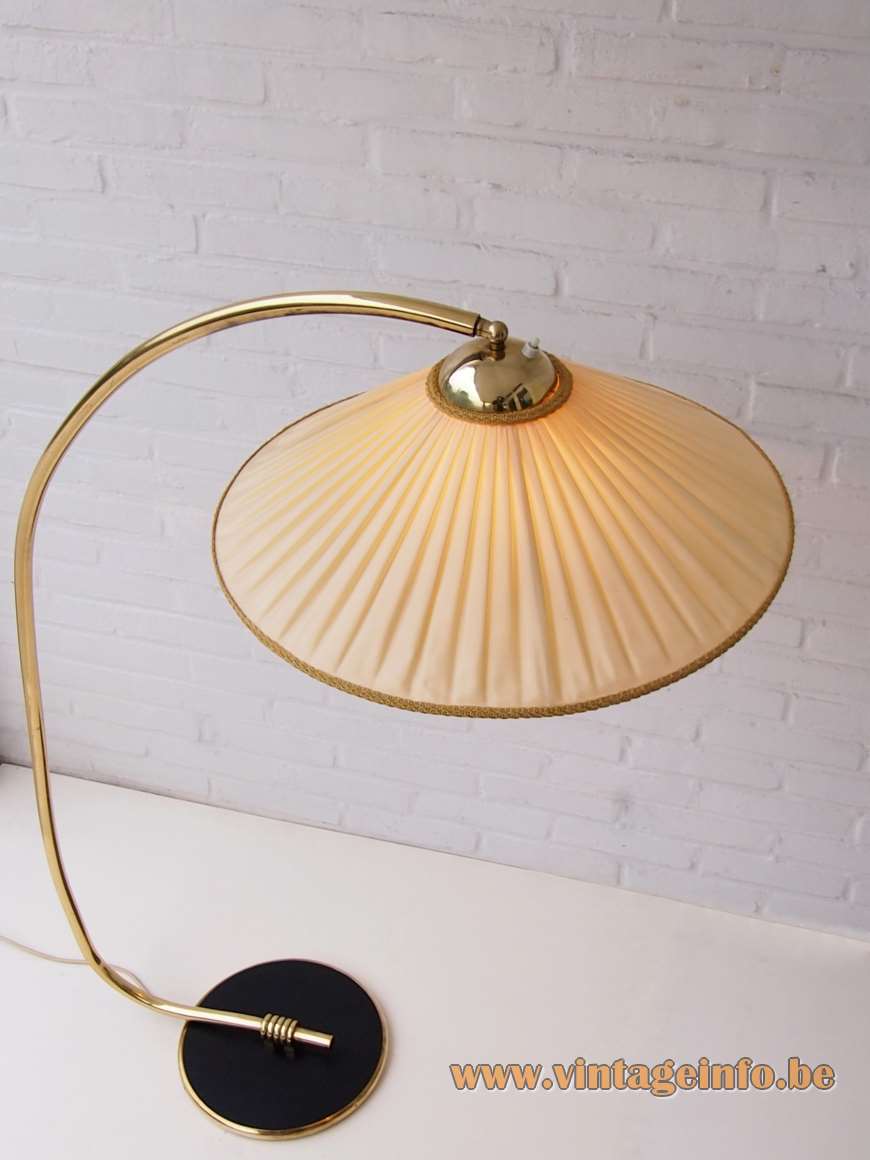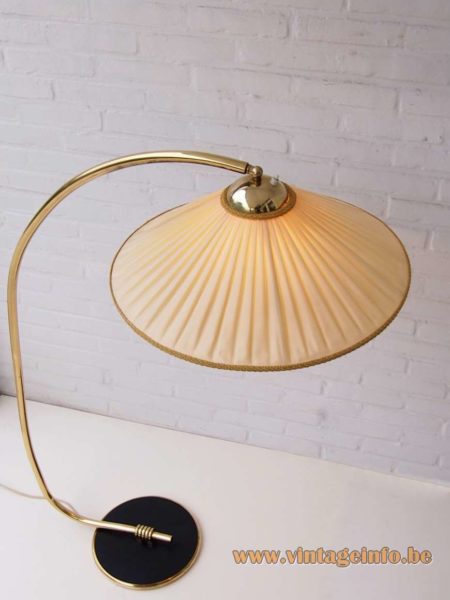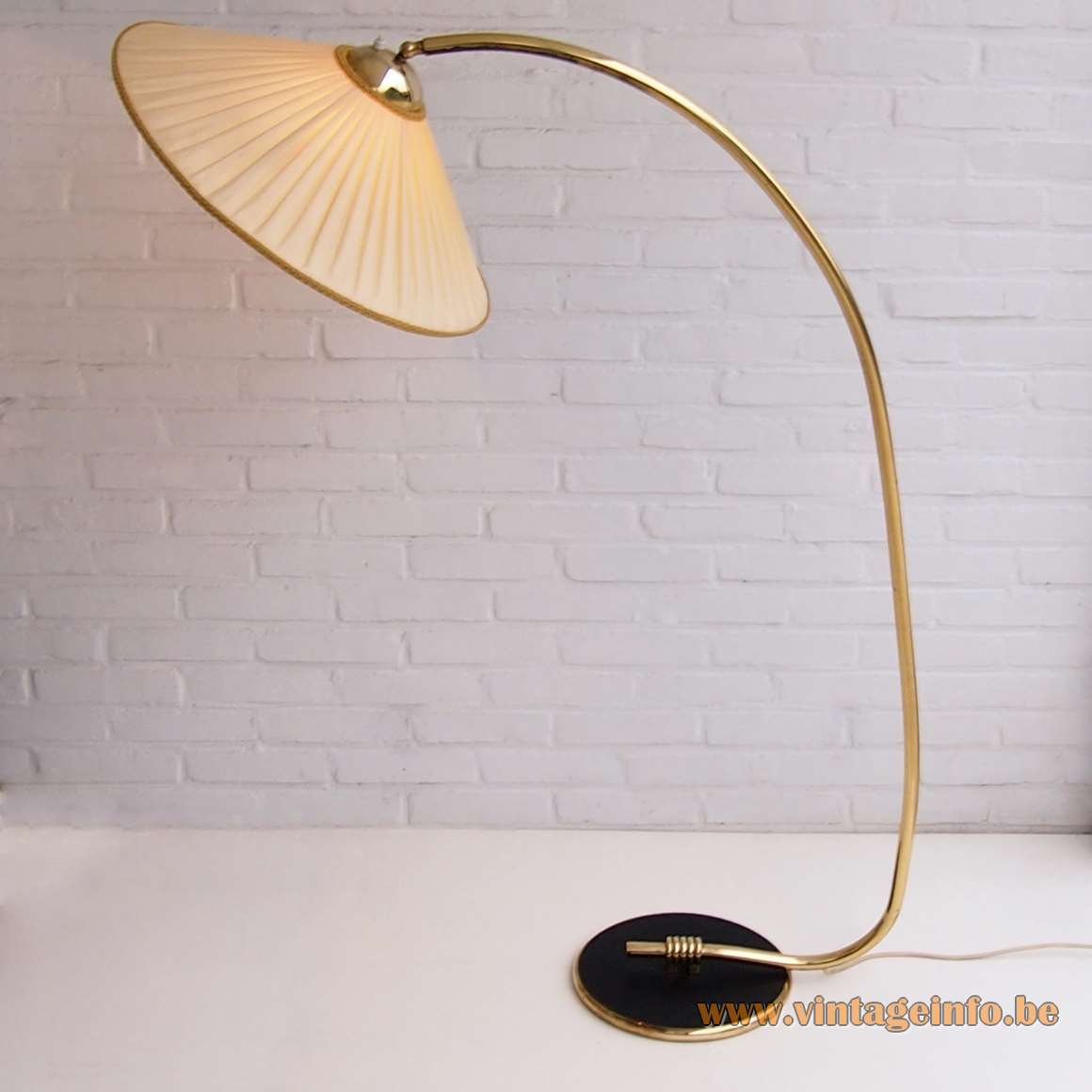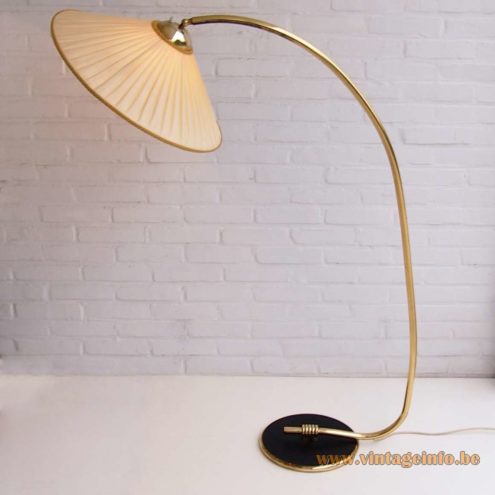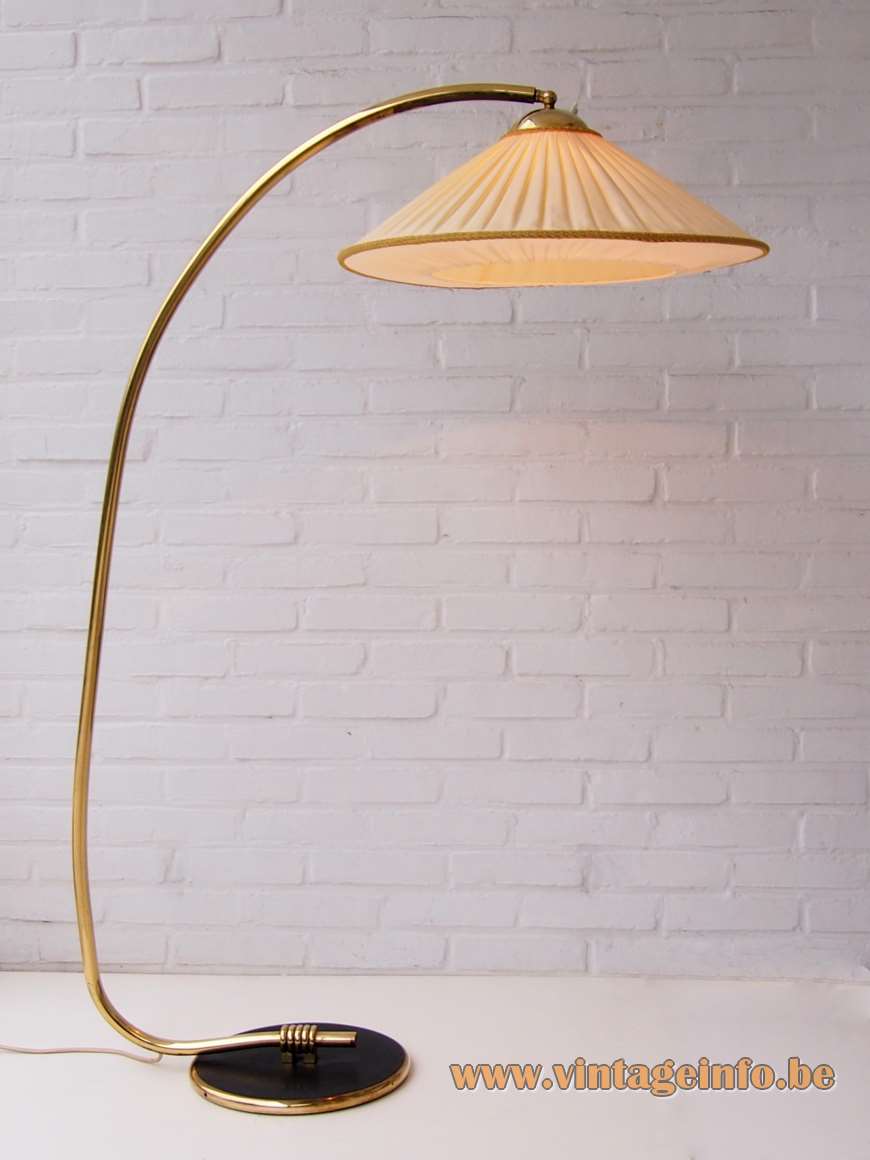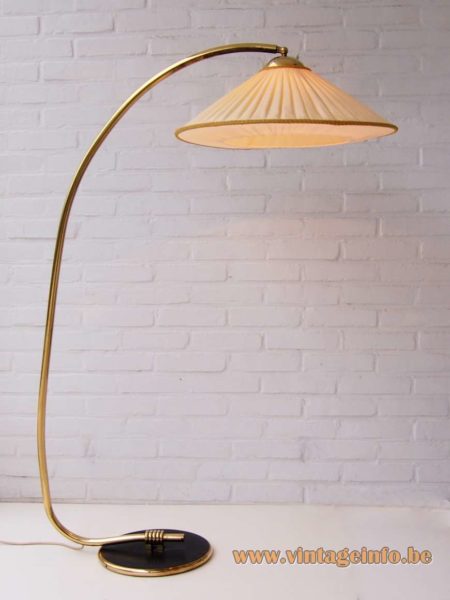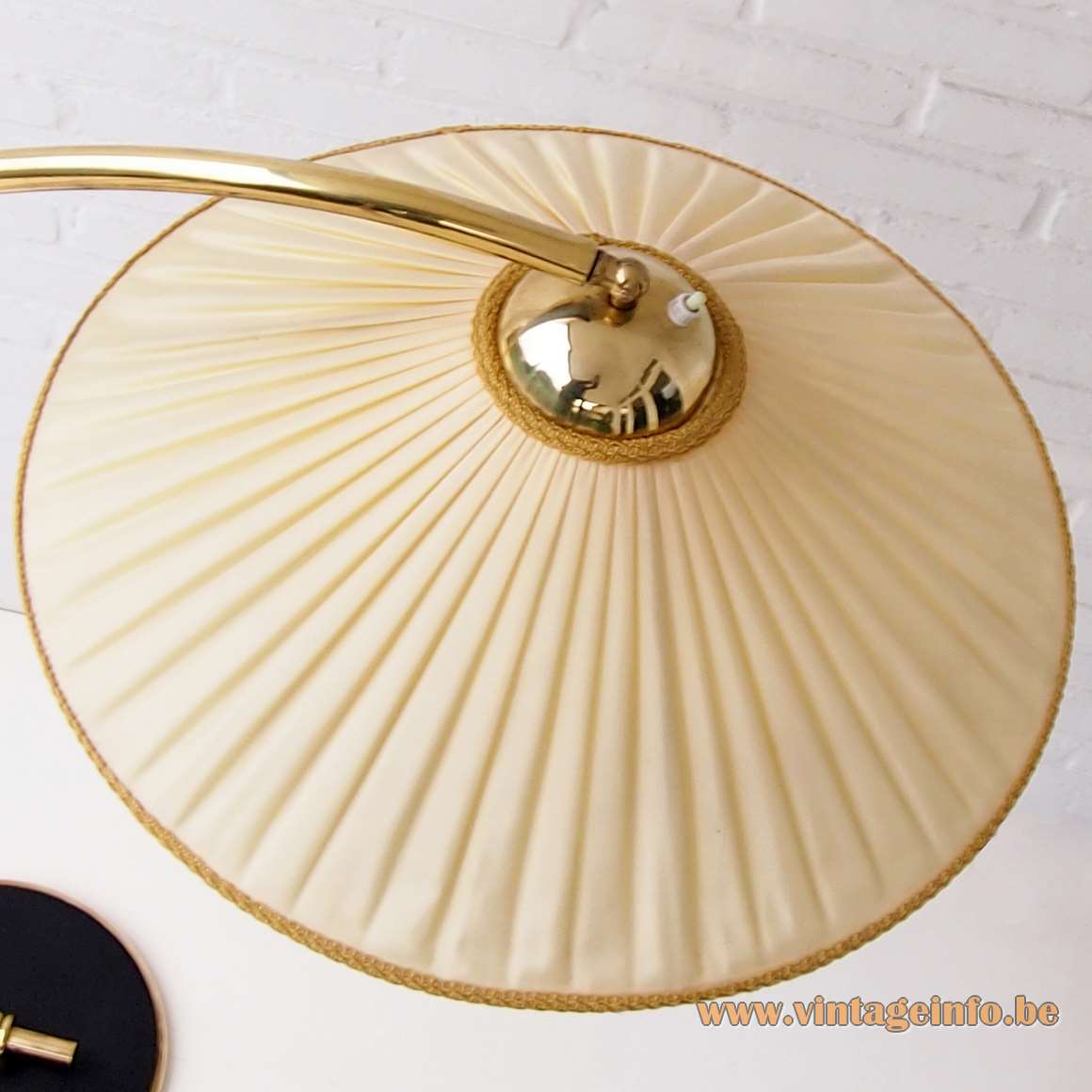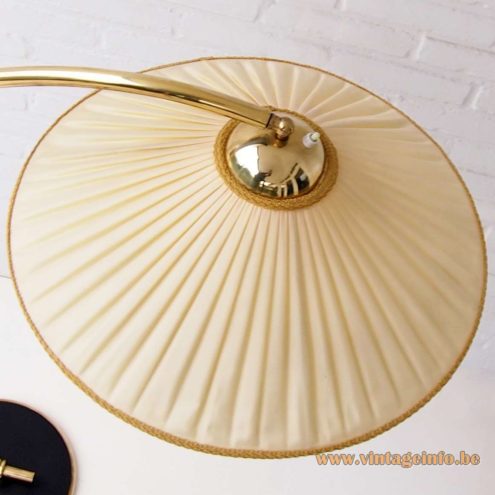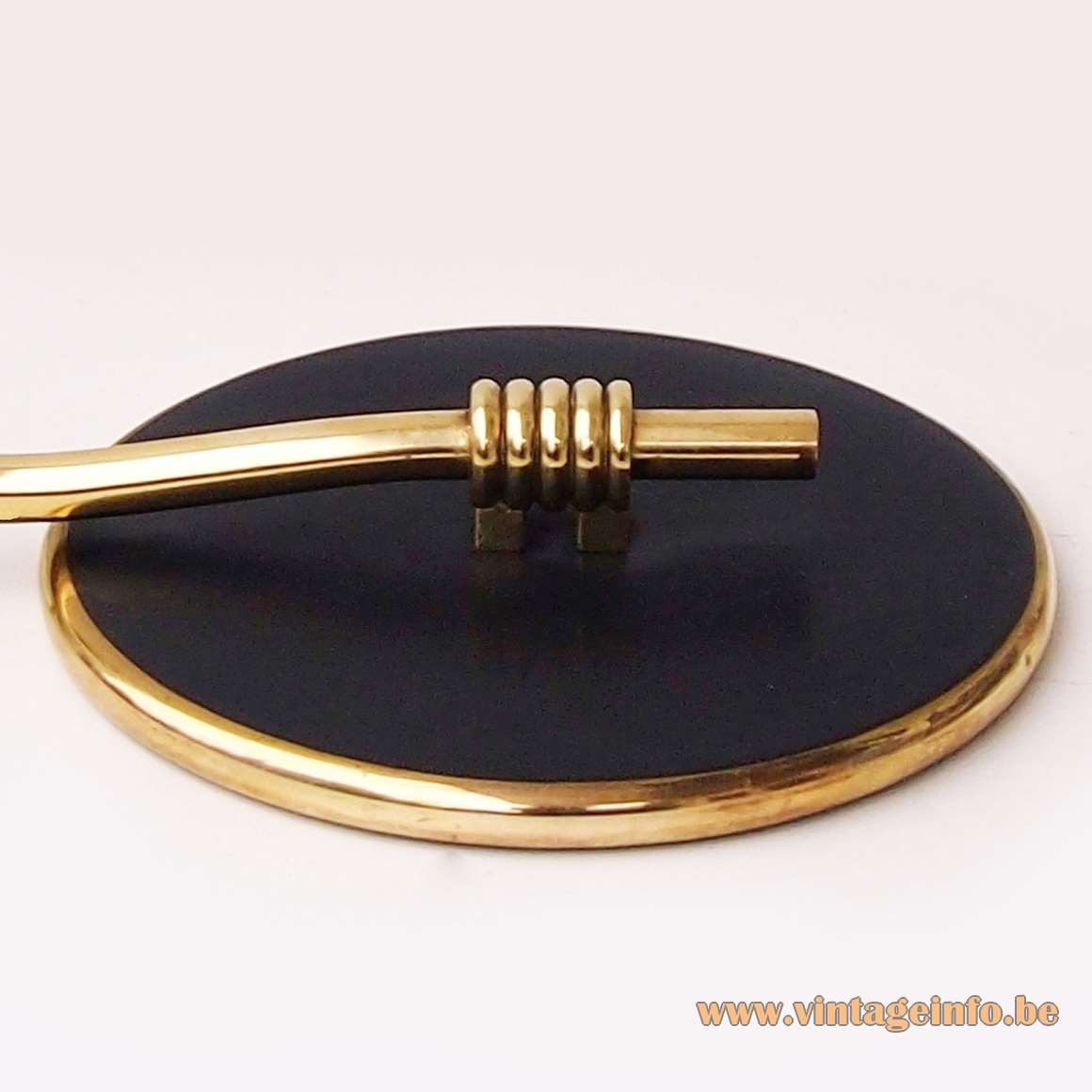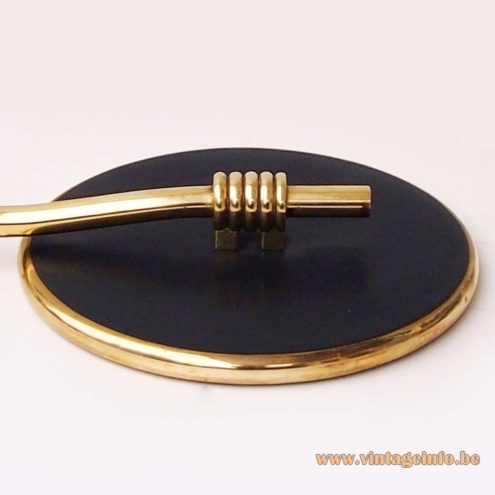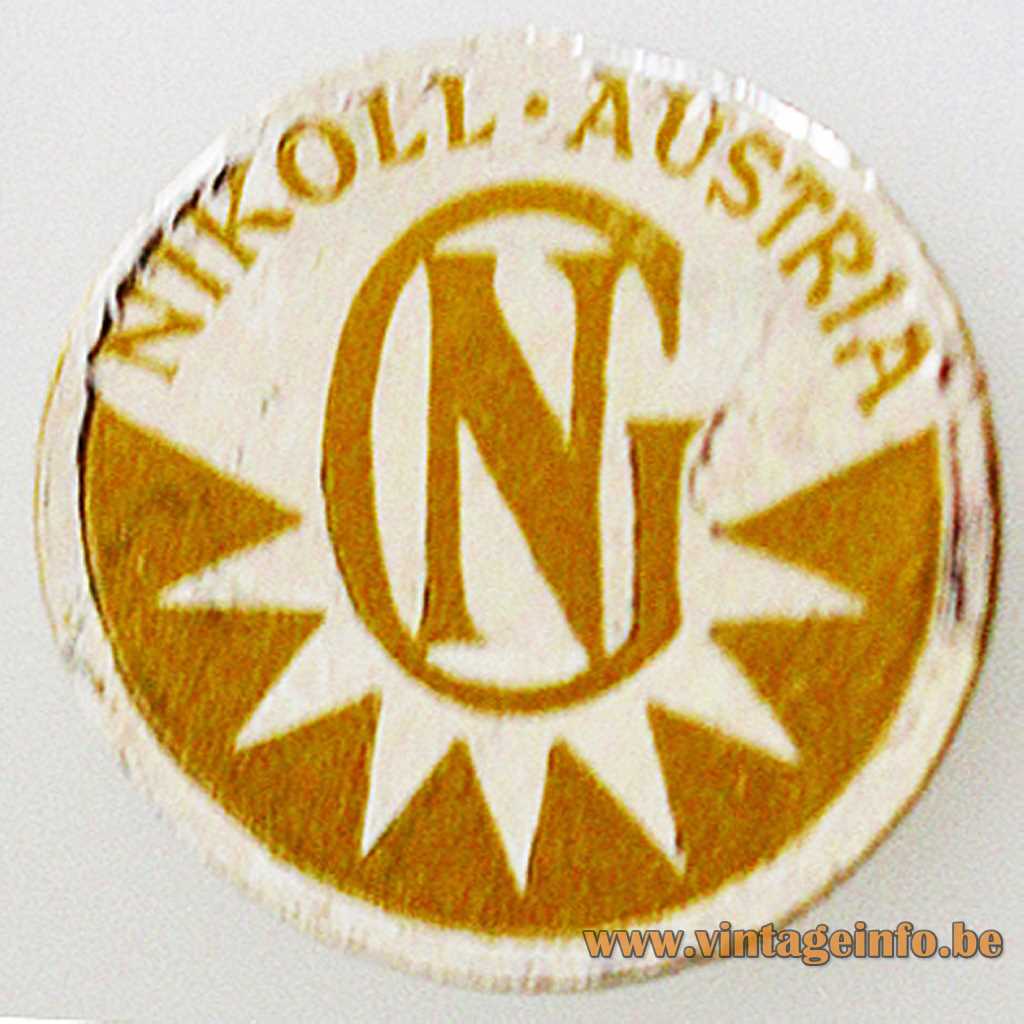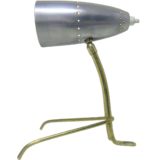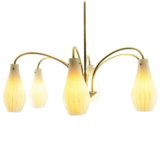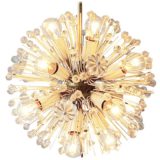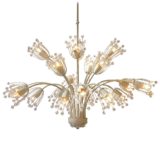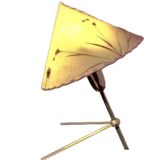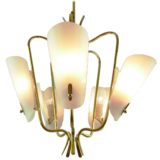Rupert Nikoll 1950s Floor Lamp
Materials: Round black painted flat brass base. Long curved brass rod. Some brass parts. Conical folded fabric lampshade. Bakelite E27 socket.
Total Height: 126 cm / 49.60”
Lampshade: ∅ 51 x 15 cm / 20.07 x 5.90”
Base: ∅ 30 cm / 11.81”
Electricity: 1 bulb E27, 1 x 60 watt maximum, 110/220 volt.
Any type of light bulb can be used, not a specific one preferred.
Period: 1950s, 1960s – Mid-Century Modern.
Designer: Rupert Nikoll – attributed.
Manufacturer: Beleuchtungskörperfabrik und Beleuchtungsglashütten Rupert Nikoll, Vienna, Austria. ((lighting equipment factory and lighting glassworks) – attributed.
Other versions: This Rupert Nikoll 1950s floor lamp was probably also made as a table lamp. The Nikoll company produced several table and floor lamps in this style.
Rupert Nikoll
Little is known about the Rupert Nikoll factory. The company was founded in 1908 and ended business in 1986. In 1966 it moved to Ober-Grafendorf, some 70 km / 43.5 miles from Vienna. Rupert Nikoll also had a branch in Munich, Germany since 1958.
Emil Stejnar (born 1931) is the most famous designer that worked for Rupert Nikoll. He is also from Austria. He designed numerous chandeliers, wall lamps, flush mounts and mirrors. All designed in the beginning of the 1950s. They were all decorated with crystal glass flowers. In 1957, goldsmith and silversmith Stejnar moved to Sweden. He married and returned to Austria in 1968. His designs were produced for decades.
Rupert Nikoll is also known for the “Sumatra” floor lamp. Made in brass with an organic lampshade. Several lamps were produced with lampshades in this form together with organic materials such as flowers, grasses and cane. Few are left and many have disappeared due to the fragility of the lampshades. You can find a beautiful example here on Vintageinfo.
Links (external links open in a new window)
Vintageinfo
Emil Stejnar sputnik flowers chandelier
Many thanks to Ger for the beautiful pictures.
